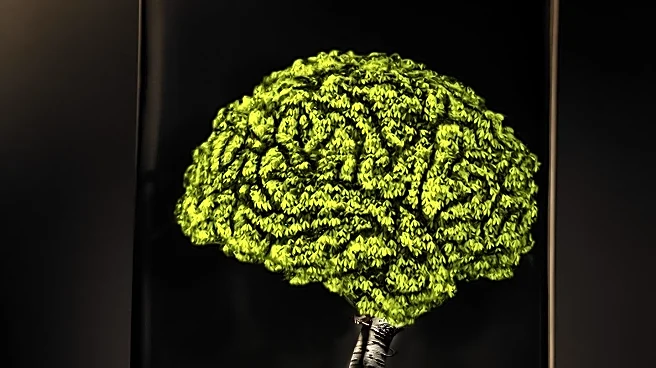What's Happening?
Neurologist Masud Husain has been awarded the 2025 Royal Society Trivedi Science Book Prize for his book 'Our Brains, Our Selves.' The book, which is a collection of case studies, explores the complexities of the human brain and its impact on identity and self-perception. Sandra Knapp, chair of the judging panel, praised the book for its combination of storytelling, rigorous science, and humanity. Husain's work is noted for its empathetic approach, highlighting how brain disorders can lead to profound changes in individuals, affecting their sense of belonging and identity. The book is based on Husain's clinical practice and research, providing insights into how pathological problems in the brain can alter a person's behavior and societal acceptance.
Why It's Important?
The recognition of 'Our Brains, Our Selves' underscores the importance of understanding the human brain's role in shaping identity and societal interactions. Husain's work brings attention to the challenges faced by individuals with brain disorders, emphasizing the need for empathy and understanding in medical and social contexts. The book's success highlights the growing interest in neuroscience and its implications for mental health and societal integration. By exploring the concept of self and belonging, Husain's book contributes to broader discussions on diversity, inclusion, and the impact of neurological conditions on personal and social identity.
What's Next?
The award may lead to increased visibility for Husain's research and further exploration of the themes presented in his book. It could inspire more interdisciplinary studies combining neuroscience, psychology, and social sciences to address the complexities of brain disorders and their societal implications. Additionally, the book's success might encourage other scientists to present their research in more accessible and engaging formats, fostering public interest and understanding of scientific topics.
Beyond the Headlines
Husain's book prompts readers to consider the ethical and cultural dimensions of brain disorders and their impact on identity. It challenges societal perceptions of normalcy and belonging, urging a reevaluation of how individuals with neurological conditions are perceived and treated. The book also raises questions about the role of science in addressing social issues, highlighting the need for compassionate approaches in both research and clinical practice.










